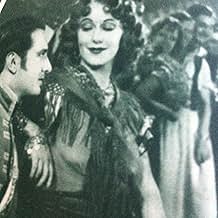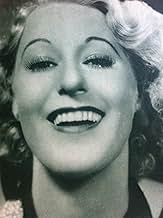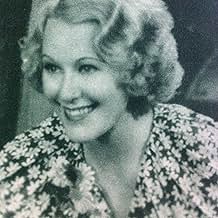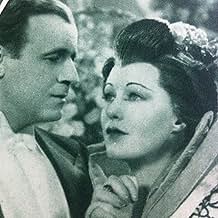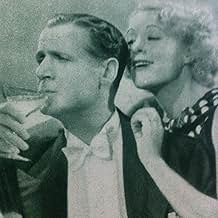Ajouter une intrigue dans votre langueMary, an aspiring opera singer, trains under famed maestro Guilio Monterverdi. Their professional relationship turns romantic amid hard work and clashes, but jealousy and misunderstandings h... Tout lireMary, an aspiring opera singer, trains under famed maestro Guilio Monterverdi. Their professional relationship turns romantic amid hard work and clashes, but jealousy and misunderstandings hinder their love's expression.Mary, an aspiring opera singer, trains under famed maestro Guilio Monterverdi. Their professional relationship turns romantic amid hard work and clashes, but jealousy and misunderstandings hinder their love's expression.
- Réalisation
- Scénario
- Casting principal
- Récompensé par 2 Oscars
- 5 victoires et 4 nominations au total
- Galuppi
- (as Andres De Segurola)
- Bartender
- (non crédité)
- Undetermined Role
- (non crédité)
- Children's Music Teacher
- (non crédité)
- Radio Judge
- (non crédité)
- Cafe Owner
- (non crédité)
- Minor Role
- (non crédité)
- Stage Manager
- (non crédité)
- Vegetable Man
- (non crédité)
- Undetermined Role
- (non crédité)
Avis à la une
Rather than rehash all that, what I wanted to mention was the naturalness that Moore sometimes brings to her musical performances, a naturalness that makes them very engaging. The most notable case is probably Ciri-ciri-bin, where you can actually imagine the restaurant crowd joining in, so unpretentious is the whole thing. Some of the opera excerpts have that same quality, at least at times.
Some of that comes from Moore's stage personality, which at times does come off as the girl next door. Some of it, however, comes from the fact that her voice, at that point, was rock-solid and capable of remarkable things. In many ways, she was like a female Mario Lanza: she had the raw gift, she just didn't always put in the necessary work to bring it under control. Nevertheless, she goes sailing through some of her numbers with clear joy because she knows the notes will be there.
As I said, there are lots of problems with the movie. At times, her character seems like an interesting feminist willing to sacrifice to have a career. At other times, that all goes out the window.
The music is good here, and some of the performances at least partially captivating. Not a great movie, but one worth watching, at least once.
Exuberantly directed by Victor Schertzinger with some lavish sets, "One Night of Love" takes us into the enchanting world of opera, with all its joys and pleasures, difficulties and heartbreaks. Moore previously made two MGM movies, both of which were commercial disappointments. Then in 1934, Columbia Pictures gave the famed opera diva another chance; to their surprise, it scored a huge success and was ultimately nominated for some Oscars.
The film genially mixes popular ballads and grand opera. Moore is very beautiful and is endowed with a strong, haunting, and remarkably talented opera voice. In this film, Moore is aided by Tullio Carminati who plays her mentor and romantic interest. Her final performance at the Metropolitan Grand Opera packs a stirring punch.
Whereas in 'Jenny Lind' (or 'A Lady's Morals') and 'New Moon' she had bigger name stars like Wallace Beery and Lawrence Tibbett (much more of a fan of the latter though, can take or leave Beery as an actor whereas Tibbett was, and still is, an operatic giant as well as a remarkably vivid actor) alongside her, and more leading lady status than the "star". Here however, she is the star in the first of five films she made with Columbia (her previous two films being with MGM), and it is one of her better, a contender for the best even, collaborations with the studio.
There is not much to complain about here, at least to me. Then again it is highly dependent on whether it is your sort of film. The start of the film is not as clever or as exuberant as the rest, setting the tone for a very typical, clichéd want-of-stardom/back-stage drama film. There are also parts where lip-synching is sloppy, particularly in "Un Bel Di Vedremo". However, there is so much to recommend about 'One Night of Love'. The story easily could have been contrived, paper thin and overly-typical with the numerous misunderstandings in danger of over-complicating the drama, but while there is not much originality it is executed with such light-footed aplomb and exuberance and the misunderstandings so wittily written that what could have been a huge problem was not problem.
Not only that, but as a singer myself it was easy to relate to Moore's character Mary's goals and trials and there is so much truth to what is shown in the film (the wants to make something out of what you love and the trials involved as well as the rewards), which also has a very autobiographical and personal feel. The opera world is not glamorised or trivialised like it could have been, it is shown as rewarding and glitzy but it is also shown that what seems so idyllic on stage and on record is not so idealistically glamorous, it's hugely competitive and often stressful.
Visually, 'One Night of Love' is a lavish-looking film, beautifully shot and designed with sheer elegance and class. The music, done during a period where opera was used extensively in film to make it more accessible to a wider audience, is magnificent, not just the timeless operatic standards such as "Habanera" from 'Carmen', "Sempre Libera" for 'La Traviata', the sextet from 'Lucia Di Lammermoor' and "Un Bel Di Vedremo" from 'Madama Butterfly' but also the title song and "Ciriciribin". The writing sparkles from bubbles on top of a champagne glass, and Schertzinger's direction is a marvel. Narratively, highlights are the scene with the musical instruments playing and Mary starts to sing as a result and the triumphant and moving finale (a character overcoming the odds is not new territory but still it's very well done here).
Moore dazzles as Mary and it is easy to see how she was made a movie star (sadly though a short-lived one on film, and in real life), her singing is wonderful -if a little over-parted in "Sempre Libera", which didn't strike me as the sort of aria that seemed completely right for her voice- and she is an expertly comedienne too. Tullio Carminatti is also ideally cast, bringing wry humour and charm, while Jessie Ralph is particularly excellent in support.
All in all, notable for making a movie star out of Grace Moore in her third film (though first time as star rather than leading lady) but also a vastly entertaining and well-made film in its own right. 8/10 Bethany Cox
Le saviez-vous
- AnecdotesThis was the first film to win an Academy Award for Best Music Score (for Louis Silvers) as 1934 was the first year that an Oscar for this category was introduced.
- Citations
Mary Barrett: I have $500 of my own. I'm taking that money and I'm going to Italy to study!
Mr. Barrett - Mary's Father: Italy?
Mary Barrett: Yes!
Mrs. Barrett - Mary's Mother: Why, that place is full of Italians!
- ConnexionsFeatured in The Soundman (1950)
- Bandes originalesOne Night of Love
(1934) (uncredited)
Music by Victor Schertzinger
Lyrics by Gus Kahn
Sung by Grace Moore at a radio contest
Partially sung a cappella by Tullio Carminati twice
Played often in the score
Meilleurs choix
- How long is One Night of Love?Alimenté par Alexa
Détails
- Durée1 heure 24 minutes
- Couleur
- Rapport de forme
- 1.37 : 1
Contribuer à cette page


